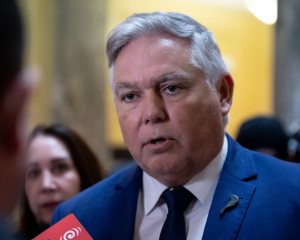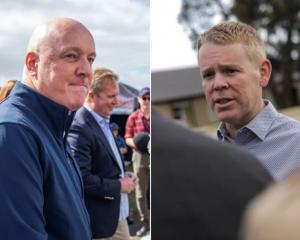National is on track to increase its vote from 2011, a third-term win not seen for about 90 years and unprecedented under New Zealand's mixed member proportional (MMP) voting system.
Parliament is expected to resume and the new government to be sworn in on October 20, but that will depend on the counting of 293,130 special votes, with the results due on Saturday, October 4.
In the last week of the campaign, National released what's next on its business growth agenda and several elements are easy to address. Mr Key needs to show National has a plan for the next three years, rather than more of the same.
The business agenda included introducing and passing the Resource Management Act reform package, which National says will provide more certainty, timeliness and cost-effectiveness in resource allocation decisions.
National will likely push forward soon with the reform of the Employment Relations Bill, further alienating unions from workplaces by providing ''flexible labour markets''. One of the main changes will be ''good faith'' not requiring a concluded collective agreement.
National has made it plain it wants to accelerate petroleum and minerals exploration through a new data-acquisition programme and wants to increase exploration further from the $1 billion spent last summer.
Importantly, voters seem to have rejected the idea from the Greens there should be no deep-sea exploration for either oil or gas.
Education is another area National will now push further on from a position of strength. Paying some principals and high-performing teachers more will change the face of primary and secondary education in New Zealand. National wants non-performing schools overseen by principals it identifies as achievers.
With 61 MPs, National is in the position of being able to govern alone, but with having to supply a speaker, Mr Key will issue invitations to the Maori Party (two MPs), Act New Zealand Epsom MP David Seymour and perennial Ohariu MP and United First leader Peter Dunne.
Maori Party leader Te Ururoa Flavell is likely to get Maori Affairs, although Attorney-general Chris Finlayson has provided momentum to settling Treaty of Waitangi claims. Mr Dunne will be a minister outside Cabinet and Mr Key is unsure whether Mr Seymour will be offered a ministerial role, again outside Cabinet.
National Party campaign manager Steven Joyce believes New Zealand First leader Winston Peters will try to position himself as Leader of the Opposition while Labour deals with its leadership issues.
National had a good relationship with the Maori Party over the last six years and it was likely Mr Key would want the party involved again, Mr Joyce said.
Mr Key said at a media conference he hoped special votes would not deprive National of its majority of 61 seats in a 121-seat Parliament and predicted special votes might take one seat off Labour and hand it to the Greens.
That would mean Labour's Andrew Little would go out and the Greens' Steffan Browning come back in.
Mr Key said in light of the historic win it was important for the party to stay grounded and not succumb to the risk of ''arrogance''.
''I don't intend to take the party veering off to the right. We've held the centre ground for the last six years. We're not looking to radical things. It's incredibly important National stays connected with its supporters and connected with the New Zealand public.''
The new National-led Government will continue its spending in Christchurch and Auckland, with major roading projects in New Zealand's largest city putting paid to calls for rapid rail transit systems.
Auckland Mayor Len Brown may find it tougher to get the funding for the planned extension to the Auckland rail system through the CBD. Housing remains a priority for the victims of the Christchurch quakes, with some people still living in atrocious conditions.
Mr Key had already spent time before the election renewing his Cabinet line-up, particularly with the forced resignations of Maurice Williamson and Judith Collins, who have both been returned to Parliament.
But former labour minister Kate Wilkinson and fisheries minister Phil Heatley were also sacked.
Mr Key has the opportunity to bring in some new faces as he looks towards a fourth term in 2017, matching former National prime minister Sir Keith Holyoake.











